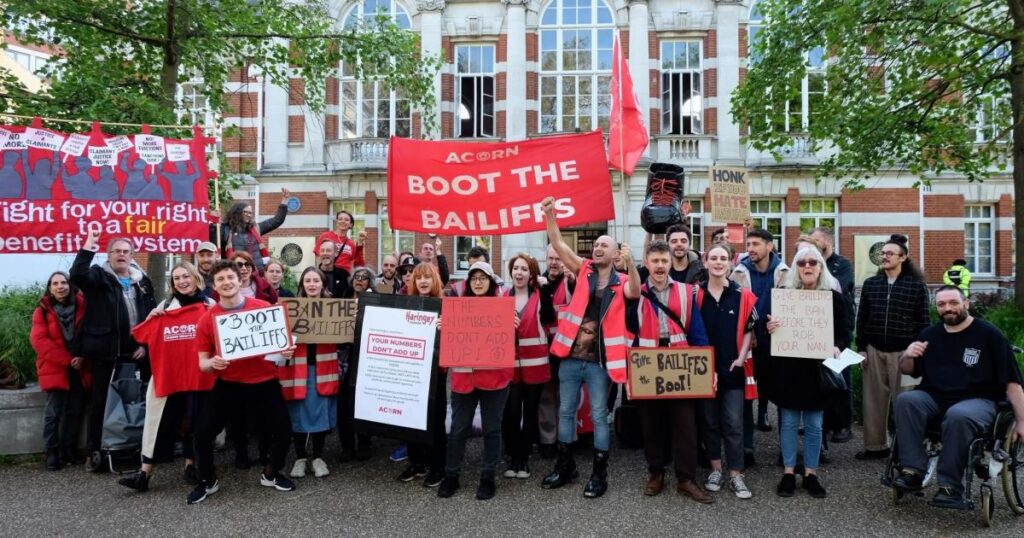More than 9,000 households were referred to bailiffs over council tax debts last year, figures show.
The data obtained by campaign group Acorn via a Freedom of Information request revealed the council referred 9,145 households to bailiff companies in 2024/25 over missed council tax payments.
The number of households referred to enforcement agencies has been steadily rising every year since 2021/22, when there were 8,048 referrals.
This is despite the council introducing an ethical debt policy in February 2021.
Acorn Haringey has been campaigning for an end to the use of bailiffs to collect council tax since 2022, with branches across the country campaigning locally and nationally for a “bailiff free Britain”.
The Haringey branch said it would be protesting outside a full council meeting on Monday, November 24 as part of a ‘National Day of Action’.
Andy Faust, chair of Acorn Haringey, said: “These figures confirm what we’ve known for some time. Haringey Council’s ethical debt policy is not worth the piece of paper it’s written on.
“Year after year, bailiff use goes up, but Haringey Council refuses to admit there is a problem.
“Bailiff companies are continuing to profit from the hardship of residents who are simply trying to stay afloat amid soaring rents, price inflation and rising bills.
“We deserve dignity, not fear. No-one should have to live with the threat that the council’s hired bullies will come knocking on their door.
“With local elections on the horizon, Haringey Council has a choice: stand with ordinary residents, or stay in the pocket of profiteering bailiff companies.”
In response, the council has accused Acorn of “making assumptions based on raw data” that didn’t “reflect” how policies worked.
In a joint statement, Seema Chandwani, cabinet member for resident services and tackling inequality, and Dana Carlin, cabinet member for finance and corporate services, said: “The council does not send enforcement agents to any household that we have identified as vulnerable, in accordance with our ethical debt policy.
“This includes those in receipt of council tax support, social care support, those who are registered with the vulnerability registration service, or those where we’ve discovered financial hardship. Our use of enforcement agencies to collect council tax is actually one of the lowest in London.
MOST READ
“We appreciate there is a cost-of-living crisis and want to help all those facing financial hardship. As a result, we spend £34.4 million a year on our council tax reduction scheme, which supports more than 20% of households in the borough.
“We only ever use enforcement agencies as a last resort, very often when residents have moved out of the borough, and we are unable to locate them.
“In the small proportion of cases when they are used, we have rigorous processes to ensure residents are treated fairly, with all visits videoed so that we can investigate complaints. Enforcement agents are contracted to return all cases where financial vulnerability is discovered.
“If Acorn has any cases, and shares them with us (with consent), we will always investigate and support residents accordingly.
“We strongly encourage any resident who is struggling to pay their council tax to get in touch with us so that we can offer support. We are here to help.”




